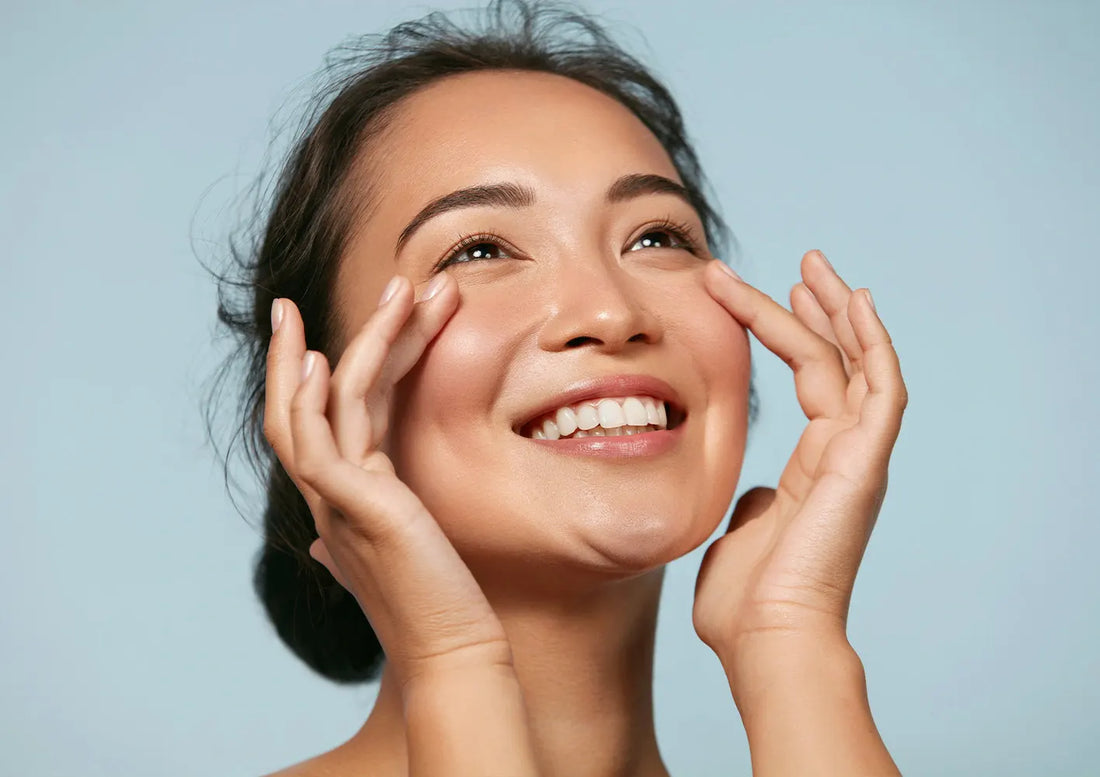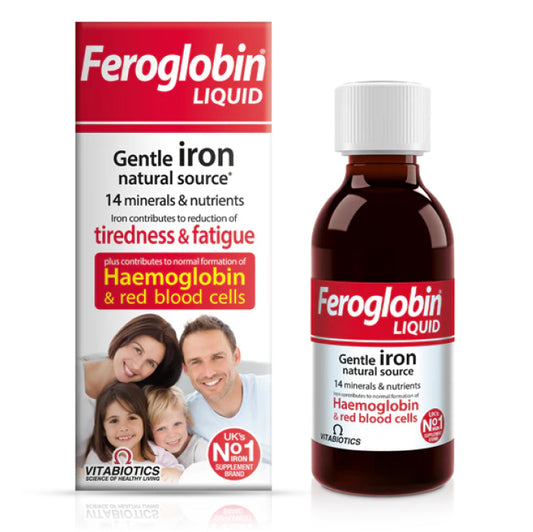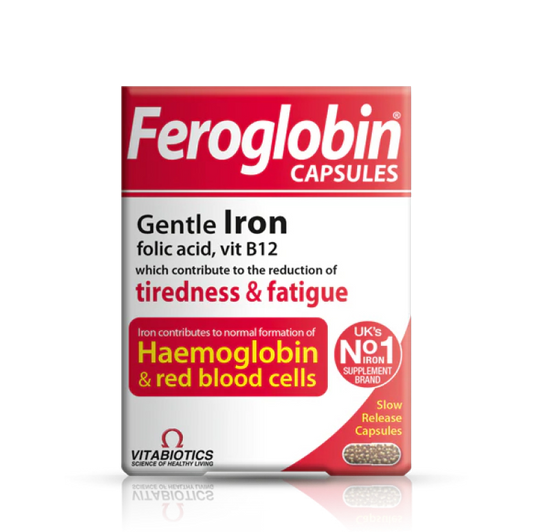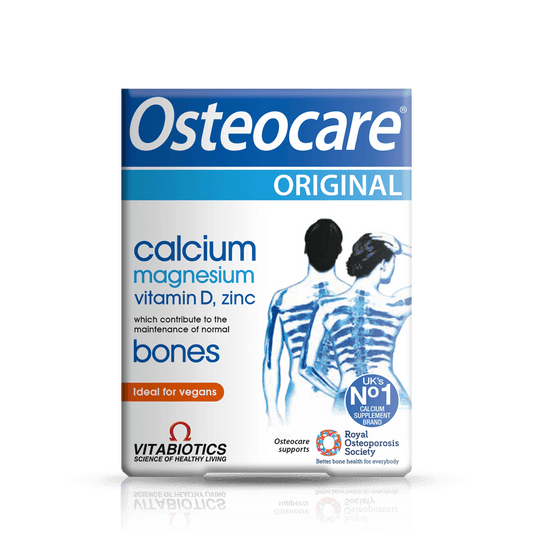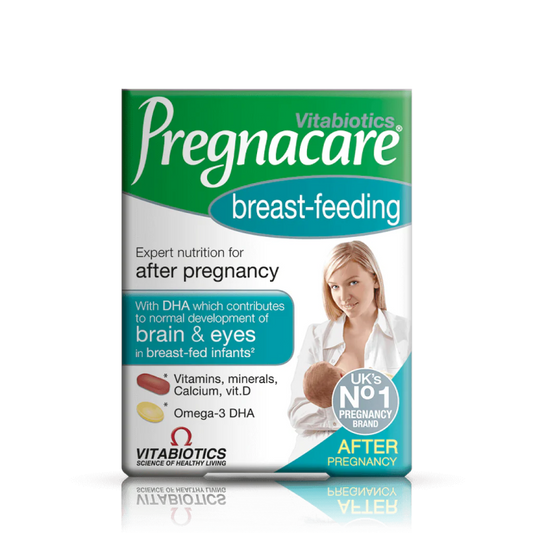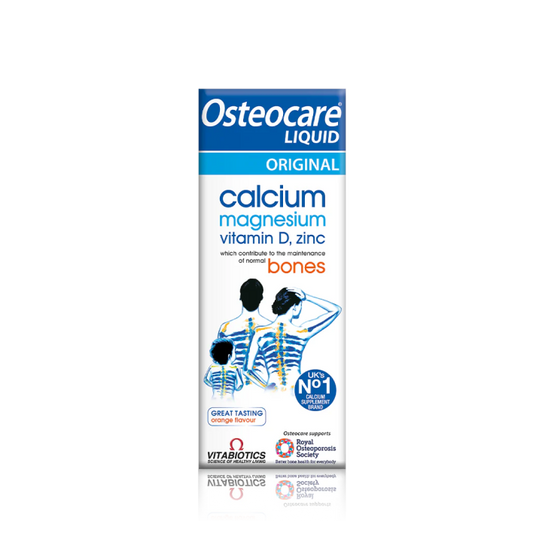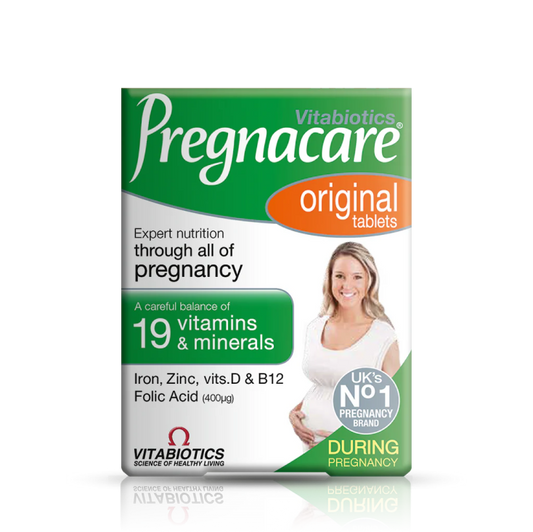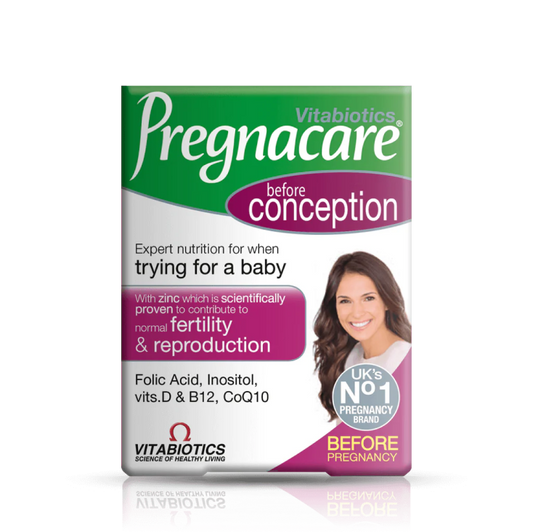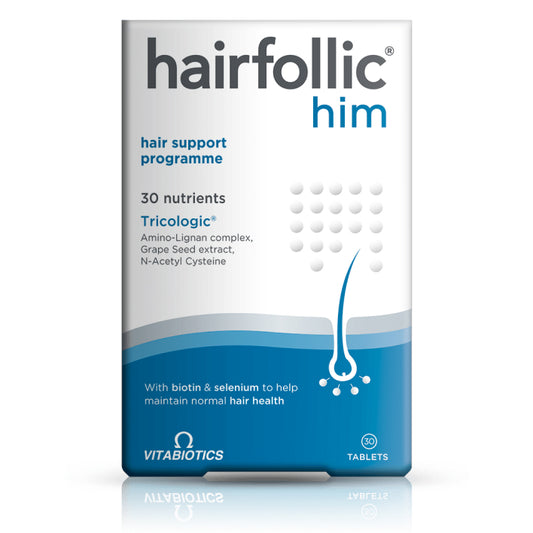Biotin, also known as vitamin B7 or vitamin H, is an essential nutrient that plays a fundamental role in maintaining our health. It is a member of the B group of vitamins and is crucial for many processes in the body. It is worth noting that the name vitamin H comes from the German language, from the words "Haar und Haut", which literally means "hair and skin". In addition to these popular terms, biotin has a number of other names, including biotin, biotine, biotine-D, coenzyme R, D-biotin, vitamine B7, vitamine H, factor W, and the more complex chemical name cis-hexahydro-2-oxo-1H-thieno[3,4-d]-imidazol-4-valeric acid.
Biotin is a water-soluble vitamin. This property means that the body is unable to store it in significant amounts, so it is necessary to supply it daily through the diet. Excess biotin consumed is naturally removed from the body through urine. Understanding this basic characteristic of biotin is crucial to being able to consciously take care of its appropriate level in our daily diet.
Biotin - what is it and what is it responsible for?
Biotin is involved in a wide range of metabolic processes that are essential for the proper functioning of the body in both humans and other organisms. Its primary role is to support the metabolism of fats, carbohydrates, and amino acids, which are the foundations of our energy and the building blocks of tissues. Biotin helps convert these nutrients into energy , which powers all of our daily activities. It is this role in energy production that makes biotin so important for maintaining vitality and well-being.
Biotin acts as a coenzyme for five key enzymes called carboxylases . These enzymes catalyze critical steps in metabolic processes, including the breakdown of amino acids and fatty acids, the synthesis of fatty acids, and gluconeogenesis, or the formation of glucose. In addition, biotin plays a vital role in modifying proteins called histones, which are part of the structure of DNA, as well as in regulating gene expression and cell signaling.
How does biotin support metabolism?
Biotin, as an essential coenzyme for the five carboxylases mentioned, is involved in key metabolic reactions that ensure the proper functioning of the body. Let's take a closer look at these enzymes and their functions:
- Pyruvate carboxylase (PC) - is extremely important in the Krebs cycle, which is the central metabolic pathway in our cells. It is involved in the process of gluconeogenesis, the creation of glucose from non-sugar precursors, and in lipogenesis, the synthesis of fatty acids. Biotin deficiency and the resulting impairment of PC function can lead to serious problems such as hypoglycemia (low blood sugar), ketosis, and lactic acidosis.
- Acetyl-CoA carboxylase (ACC) is a key enzyme in fatty acid synthesis. It occurs in two forms: ACC1 in the cytosol of the cell and ACC2 in the mitochondria. Both forms are necessary for different aspects of lipid metabolism.
- 3-Methylcrotonyl-CoA carboxylase (MCC) - plays an important role in the catabolism of leucine, one of the branched-chain amino acids. In the case of biotin deficiency, leucine metabolism may be impaired, leading to the production and excretion of 3-hydroxyisovaleric acid in the urine.
- Propionyl-CoA carboxylase (PCC) - catalyzes an important step in the metabolism of propionyl-CoA. Its proper function is necessary for the processing of some amino acids and fatty acids. Biotin deficiency can lead to propionic acidosis.
In addition to its role as a cofactor for carboxylases, biotin is also involved in modifications of histones , which are structural proteins in the cell nucleus. These modifications affect the stability of chromatin (the complex of DNA and proteins) and gene expression. Biotin therefore plays a much broader role in cell function than just the metabolism of essential nutrients.
Does biotin really strengthen hair, skin and nails?
Biotin supplements are extremely popular and are widely advertised as a miracle cure for improving the condition of hair, skin and nails. There is no doubt that a biotin deficiency can lead to unpleasant symptoms such as hair loss (alopecia), brittle nails and various skin problems. Biotin is necessary for the production of keratin, the main protein building block of hair and nails .
However, when we look at the scientific evidence, the effectiveness of biotin supplementation in improving the condition of hair, skin, and nails in healthy people who are not deficient in this vitamin is quite limited. Many of the claimed benefits are based on insufficient data or only on case reports. However, a few small studies have found that high doses of biotin can provide some improvement in people struggling with thin and brittle nails, increasing their hardness . It is worth noting, however, that these studies often had methodological limitations, for example, the participants’ baseline biotin levels were not always measured.
Doctors have also noted sporadic cases where high doses of biotin have improved rare hair disorders in children and have alleviated skin rashes in infants . Interestingly, a 2017 review of studies found that in 18 documented cases where biotin supplementation had positive effects on hair and nails, all of the patients had conditions related to biotin deficiency. These observations suggest that biotin supplementation may be most beneficial in situations where there is a true deficiency of the vitamin.
Other Potential Health Benefits of Biotin
In addition to its role in metabolism and potential effects on hair, skin, and nails, biotin is being studied for other potential health benefits. Preliminary research suggests that combining biotin with chromium may help control blood sugar levels in some people with type 2 diabetes , although biotin alone does not appear to have this effect. However, further, more detailed research is needed to fully understand biotin's potential in this area.
There are also reports that biotin supplementation can alleviate symptoms of peripheral neuropathy in some patients who have nerve damage from diabetes or dialysis . However, there is a lack of solid research that clearly proves biotin's effectiveness in treating this condition.
Interestingly, one study suggests that biotin may help restore the sense of taste in people who have lost it. As with other potential benefits, more research is needed to confirm these promising results.
It is also worth mentioning that there is limited evidence to suggest that high doses of biotin may have a beneficial effect in reducing symptoms of multiple sclerosis (MS) in some patients. However, other studies have not confirmed these observations.
In addition, biotin is being studied for its effect on blood lipids. Some studies indicate that biotin supplementation may help lower triglycerides and LDL cholesterol (the “bad” cholesterol) in people with hypertriglyceridemia and type 2 diabetes.
However, it is important to remember that many of these potential health benefits of biotin require further, more rigorous research to fully understand its role and effectiveness in these areas.
What are natural sources of biotin?
Ensuring adequate levels of biotin in the body is usually easy with a varied diet, as biotin is found in many commonly consumed foods. Including a variety of biotin sources in your daily diet is key to maintaining proper levels.
Products rich in biotin
Good sources of biotin include:
- Organ meats: Beef liver in particular is a rich source of biotin. Three ounces of cooked beef liver provides a whopping 30.8 mcg of biotin.
- Eggs: These are an excellent source of biotin, especially the yolk. One large, cooked egg contains about 10 mcg of biotin. It is important to avoid eating raw egg whites because they contain avidin, a protein that binds with biotin and prevents its absorption.
- Fish: Fish like salmon and sardines also provide biotin. Three ounces of canned pink salmon contains about 5 mcg of biotin.
- Nuts and seeds: These are good sources of biotin. For example, a cup of almonds contains about 6 mcg, and a quarter cup of roasted sunflower seeds contains about 3 mcg. Walnuts are also a good source, providing about 9.5 mcg per 6 halves.
- Vegetables: Some vegetables, such as sweet potatoes, spinach, broccoli, cauliflower, and carrots, contain biotin. A cup of cooked sweet potatoes provides about 4.8 mcg of biotin.
- Other sources: Other foods containing biotin include yeast (brewer's and baker's), whole grains, bananas, milk and dairy products, soy and other legumes, and mushrooms.
How to include biotin-rich foods in your daily diet?
Adding biotin-rich foods to your daily diet doesn’t have to be difficult. Here are some simple ideas:
- Breakfast: start your day with scrambled eggs with vegetables, oatmeal with nuts and banana, or natural yogurt with sunflower seeds.
- Lunch: Consider baked liver with potatoes and salad, grilled salmon with broccoli, or a hearty hamburger on a whole grain bun.
- Dinner: prepare an omelet with your favorite vegetables, a tuna and walnut salad, or a creamy cauliflower soup.
- Snacks: Always have a mix of nuts and seeds or a fresh banana on hand.
It is also worth remembering that heat treatment can reduce the biotin content of some products , so try to include raw or lightly processed sources of biotin in your diet.
What are the symptoms and potential effects of biotin deficiency?
Biotin deficiency in humans is relatively rare, as biotin is widely available in many foods and can also be synthesized by bacteria in our intestines. However, there are certain groups of people who may be at greater risk of biotin deficiency.
How to recognize biotin deficiency?
Symptoms of biotin deficiency may appear gradually and include a variety of ailments:
- Dermatological problems: Skin rashes may occur, often around the eyes, nose, and mouth. The skin may become dry or scaly. Skin infections may also occur. Conjunctivitis, or pink eye, is also a common symptom. In some cases, the characteristic facial rash is referred to as "biotin deficiency face."
- Hair problems: Biotin deficiency can lead to hair thinning and loss (alopecia), as well as loss of natural hair color.
- Nail problems: Nails may become brittle and weak.
- Neurological symptoms: Symptoms such as depression, feeling tired all the time (lethargy), irritability, and even hallucinations may occur. Other neurological symptoms include numbness and tingling in the limbs, impaired motor coordination (ataxia), and seizures. In infants, biotin deficiency may manifest as decreased muscle tone (hypotonia), excessive sleepiness, and delayed development.
- Other symptoms: Other possible symptoms of biotin deficiency include high acid levels in the blood and urine, various infections, general weakness of the body, nausea, loss of appetite, insomnia, cracks in the corners of the mouth, and swelling and soreness of the tongue (glossitis).
Who is most at risk of biotin deficiency?
Although biotin deficiency is rare, certain groups of people are more susceptible to it:
- People with congenital biotinidase deficiency (BTD): This is a rare genetic disorder in which the body cannot use biotin properly. Newborns in many countries are routinely screened for this condition.
- People with alcoholism: Alcohol abuse can lead to decreased absorption of biotin and other important nutrients.
- Pregnant and breastfeeding women: During these periods, the need for many nutrients increases and biotin levels may be lower despite normal dietary intake.
- People taking certain medications: Long-term use of certain medications, such as antiepileptics (e.g. phenytoin, carbamazepine, phenobarbital) and antibiotics, can affect the levels of biotin in the body. Antibiotics can destroy intestinal bacteria that produce biotin.
- People on long-term parenteral (IV) nutrition: If intravenous nutrition fluids do not contain added biotin, biotin deficiency may occur.
- People with intestinal absorption disorders: Conditions such as Crohn's disease may make it difficult to absorb biotin from food.
- Smokers: Smoking, especially in women, can lead to increased biotin metabolism and decreased biotin levels in the body.
- Older adults: Older adults may be at increased risk of biotin deficiency.
- People taking isotretinoin: A drug used to treat acne may affect biotin levels.
- People who consume large amounts of raw egg whites: The avidin contained in them binds biotin, preventing its absorption.
Being aware of these risk factors can help you recognize a potential biotin deficiency early and take appropriate steps to avoid or treat it.
What are the recommended daily doses of biotin for each age group?
Due to a lack of sufficient data, no formal Recommended Daily Allowance (RDA) has been established for biotin. Instead, the Institute of Medicine (now the Academy of National Medicine) has developed an Adequate Intake (AI) level that is considered adequate to meet the body's needs.
Recommended Biotin Intake for Babies, Children, Adolescents and Adults
The table below shows the recommended Adequate Intake (AI) levels for biotin in micrograms (mcg) per day, depending on age and physiological condition:
|
Age group |
Recommended intake (mcg/day) |
|
Babies 0-6 months |
5 |
|
Babies 7-12 months |
6 |
|
Children 1-3 years |
8 |
|
Children 4-8 years old |
12 |
|
Children 9-13 years old |
20 |
|
Teenagers 14-18 years old |
25 |
|
Adults 19+ years |
30 |
|
Pregnant Teenagers and Women |
30 |
|
Breastfeeding Teenagers and Women |
35 |
These values provide guidelines for the amount of biotin most healthy people should take daily to ensure proper body function.
Biotin requirements during pregnancy and breastfeeding
The need for many nutrients, including biotin, increases during pregnancy and breastfeeding . Some studies suggest that biotin deficiency in pregnant women may increase the risk of complications such as premature birth or fetal growth restriction.
The recommended Adequate Intake (AI) for pregnant women is 30 mcg of biotin per day, while for breastfeeding women it is slightly higher at 35 mcg per day . It is worth noting that even with biotin intake at the recommended level, some pregnant women may experience a marginal deficiency, which highlights the importance of ensuring an adequate supply of this vitamin during this special period.
Is it worth taking biotin supplements?
Biotin supplementation may be considered in certain situations, primarily in cases of known or suspected deficiency of this vitamin. A doctor may recommend biotin supplements for people with biotinidase deficiency, alcohol abuse, pregnant or breastfeeding women, and those taking medications that may affect biotin levels in the body. In some cases, supplementation may also be considered to improve brittle nails or rare hair disorders, although the scientific evidence is less clear in these situations.
This may be useful to you: Hairfollic - hair supplements for your strength
Potential Benefits and Risks of Biotin Supplements
Biotin supplementation may provide some benefits, but it also comes with potential risks that are worth being aware of.
Benefits:
- Biotin supplements are effective in treating and preventing biotin deficiency. Doses of up to 10 mg per day have been used to treat deficiency.
- For some people struggling with brittle nails, biotin supplementation can help improve their thickness and hardness. Studies have shown that a dose of 2.5 mg of biotin per day can increase nail thickness by up to 25%.
- In rare cases, supplementation may improve hair and skin condition in people who are biotin deficient or have certain conditions, such as uncombed hair syndrome.
Risks:
- One of the most significant risks of biotin supplementation is its potential impact on laboratory test results. Taking biotin supplements can lead to falsely high or falsely low test results, including tests for thyroid hormones, sex hormones, vitamin D, and cardiac markers. Therefore, it is extremely important to tell your doctor if you are taking biotin supplements before any scheduled laboratory tests. Your doctor may recommend that you stop taking the supplement for a period of time before the test.
- Although biotin is generally considered safe even in high doses (up to 300 mg per day for up to 6 months), and excess is excreted from the body through the kidneys, no upper limit of intake (UL) has been established due to the lack of reports of adverse effects at very high doses. However, very high doses may in rare cases cause insomnia, excessive thirst, and increased urination.
- In rare situations, serious adverse events have been reported in association with biotin supplementation, such as eosinophilic pleural-pericardial effusion.
Important Information About Drug Interactions and Laboratory Tests
It is important to note that biotin can interact with certain medications. For example, antiepileptic drugs such as phenytoin, carbamazepine, and phenobarbital can lower biotin levels in the body. In turn, biotin can affect the effects or levels of certain medications in the body. Cigarette smoking can speed up the metabolism of biotin , which may increase the need for it in people who are deficient.
As mentioned, biotin supplementation can significantly affect the results of many laboratory tests, giving falsely high or falsely low readings. This includes tests for thyroid hormones, sex hormones, and troponin, a marker used to diagnose heart attacks. For this reason, you should always tell your doctor if you are taking biotin supplements, especially before any scheduled tests.
See also: How to care for your hair with supplements?
Facts and myths about biotin - what is worth knowing?
There are many myths surrounding biotin, often fueled by marketing for hair and nail care products. It is worth separating fact from fiction to make informed decisions about supplementation and care.
Popular Biotin Myths and Reality
- Biotin is the panacea for all hair problems . Fact: Biotin only promotes hair growth in people who are deficient in this vitamin. Most people get enough biotin from their daily diet. There is no strong scientific evidence to support that biotin supplementation improves hair growth in people without a deficiency.
- Biotin supplementation provides immediate results in improving hair condition. Fact: Even if supplementation is indicated (in the case of deficiency), the effects may not be visible until several months of regular use. Many factors affect hair growth, such as genes, hormones, stress levels, and general health.
- Biotin shampoos and conditioners are wonderful for stimulating hair growth . Fact: Biotin does not penetrate the skin effectively, so its topical application in shampoos and conditioners probably does not significantly affect hair growth from the roots. However, these products can improve the appearance of hair by adding volume, shine, and detangling.
- The more biotin you take, the better for your hair and nails . Fact: Excessive biotin intake provides no additional benefit in people who are not deficient and can lead to false laboratory test results. Although no upper limit has been set, it is advisable to stick to recommended doses and consult a physician before taking high doses of supplements.
Biotin Trivia
- The name "biotin" comes from the Ancient Greek word "biotos", meaning "life" or "keeping alive".
- Biotin is essential not only for humans but also for many other organisms, including bacteria, yeast, molds, algae, and some plant species. Interestingly, the bacteria living in our large intestine can also synthesize biotin, although it is not entirely clear to what extent it is absorbed and used by our bodies.
- Biotin is relatively stable and is not destroyed by cooking at room temperature.
- Biotin was discovered in 1927, but only after about 40 years of intensive research was it officially recognized as a vitamin.
Will biotin in your cosmetic bag improve the condition of your hair?
Biotin is a popular ingredient in many cosmetic products, especially those designed for hair and skin care. It can be found in shampoos, conditioners, masks, serums and many other preparations.
How is biotin used in hair and skin care products?
In cosmetics, biotin is valued primarily for its moisturizing and smoothing properties. It is believed to improve the texture of creams and add volume, shine, and manageability to hair. Biotin also supports the production of keratin, the main protein in hair. This can help strengthen hair structure, making it more flexible and less prone to breakage. Some studies suggest that topical application of biotin can bind to hair fibers, increasing their diameter and giving an immediate effect of fuller hair. Many products combine biotin with other ingredients, such as collagen, plant oils, and herbal extracts, to enhance their conditioning effects.
Do shampoos and conditioners with biotin really work?
Although shampoos and conditioners containing biotin are very popular, the scientific evidence supporting their effectiveness in stimulating hair growth in people without a deficiency is limited. Biotin probably does not penetrate the scalp in sufficient quantities to significantly affect hair follicles and stimulate new hair growth.
However, using shampoos and conditioners with biotin may provide some cosmetic benefits. Biotin can strengthen hair, reduce breakage, and improve its overall appearance, giving it more volume and shine. It also makes combing easier, which further minimizes the risk of mechanical damage. Many people who use these products notice an improvement in the condition of their hair. For those with a real biotin deficiency, using hair care products containing this vitamin can be one part of a comprehensive approach to improving hair health, but in this case, oral supplementation is probably more effective.
A few words of summary
Biotin, also known as vitamin B7 or H, is an essential B vitamin that plays a key role in the metabolism of carbohydrates, fats, and proteins, converting them into energy for life. It is important for maintaining healthy skin, hair, nails, and the proper functioning of the nervous system. Although biotin deficiency is rare, it can lead to a variety of unpleasant symptoms, such as hair loss and skin problems.
Most people can get adequate biotin through a varied diet rich in natural sources of the vitamin, such as eggs, meats, nuts, seeds, and some vegetables. It’s always a good idea to consult your doctor if you’re considering taking a biotin supplement, especially in high doses, especially if you’re taking other medications or have lab tests scheduled, as biotin can affect the results. Remember, biotin supplements are most effective in people with a known deficiency. Hair products containing biotin can improve the appearance of your hair, but their effect on hair growth from the roots is likely to be limited. Maintaining a balanced diet and taking an informed approach to supplementation is key to maintaining your health and well-being.

